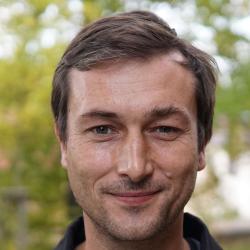Klaus-G. Hinzen, Fabrizio Galadini, Shmuel Marco, Stathis Stiros, and Amanda M. Gaggioli invite contributions to an archaeoseismology session at the 37. Assembly of the European Seismological Commission (ESC) 2020, September 6-11 in Corfu, Greece. Deadline for abstract submission is April 12th 2020.
Session description
Archaeoseismological studies are often made with great enthusiasm and dedication to a certain object or building. Motivation for the research can be manifold, e.g., (1) extend our knowledge of the seismic history of certain regions, (2) conserve our cultural heritage, (3) mitigate effects of future earthquakes. However, the multidisciplinarity necessary for this kind of research is not always sufficiently applied, be it missing archaeological expertise or seismological and/or engineering knowledge. Therefore, we would like to highlight the advantages and encourage the close collaboration of various disciplines, including advanced surveying and imaging, engineering, computer simulations, and clearly – archaeology and history, reaching beyond a verbal description of potentially seismically caused damage. The techniques include field observations, documentation, model building, recovery of information from documents, correlation with geology, and more. From research of the effects of recent earthquakes we know that correlations exist between the reaction of buildings, monuments, columns, tombstones, etc., and the seismic source as well as the geological site conditions. As the laws of physics are time invariant, knowledge gained in reconnaissance surveys after well studied instrumental earthquakes can help to better reveal information about ground motions also during historical and pre-historical earthquakes, particularly when constructions with old building techniques are involved. Research covering this aspect and systematic studies of decay processes of earthquake damaged constructions are also invited. We encourage (particularly young) researches to present as many field cases as possible in posters allowing a side by side discussion of the applied techniques.



No Comments
No comments yet.